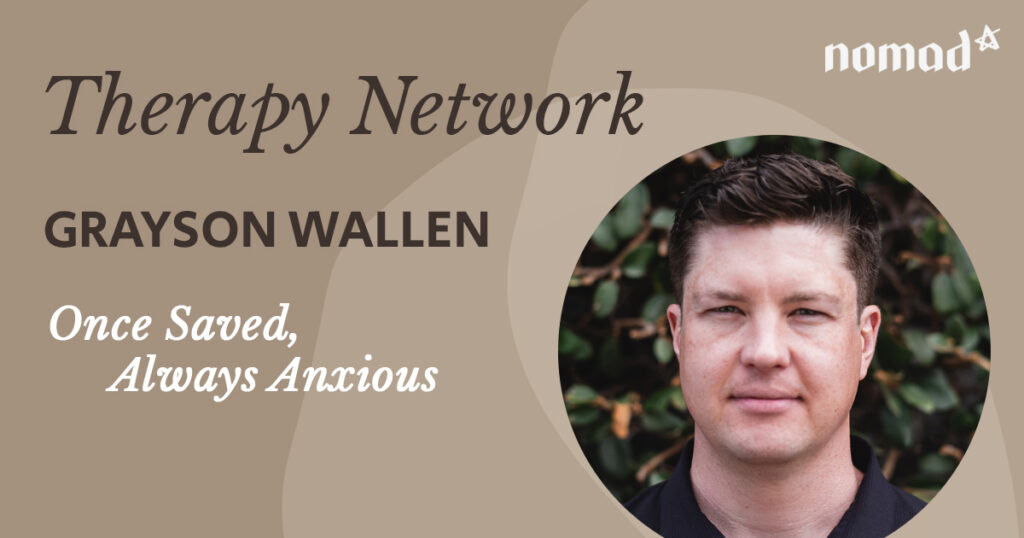I was raised in a non-denominational, theologically Reformed church from when I could remember walking and talking. My Mom was adamant that her children were “raised in the house of the Lord”, largely due to what I now suspect is generational expectations that were passed down. I attended church throughout my childhood, adolescence and early adulthood 2-3 times a week and had Awana vests, Vacation Bible School shirts and Church Summer and Winter Camp memorabilia to prove it.
Throughout High School, messages on Purity Culture as well as Biblical Manhood appealed to me since I had been repeatedly taught that there is clear good/bad, heaven/hell, and these sacred-secular divides scared me. I was determined to not “loose” my faith in College (and beyond), although in retrospect this was an interesting fear to have in the Reformed tradition since the common teaching was also “once saved, always saved” and that saving faith produces fruit, which I had clearly had (volunteerism, the Fruits of the Spirit and veneers of holiness). My focus on fostering a Christian faith of my own, compelled me to join part-time volunteer ministry leadership at 18 years old, while attending college full time and working part time. Needless to say, I literally ran off of 4-5 hours of sleep daily and somehow made it to church meetings on time.

I had all of the churchy accolades: leadership in High School and College ministries amongst my peers, didn’t miss opportunities to serve, had meetings with senior church leadership and also saw how the sausage was made. I say it this way, since I had an unfiltered perspective on how services came together, decision-making about church direction, finances and pushes for more volunteers were administered. I also saw what happened in the church unprofessionally (and illegally at times), and how issues were “handled internally”, which I later came to terms with having perpetuated my own emotion of guilt and further religiosity to deal with the guilt
During this time, I also had some experiences with Mars Hill in Seattle, and had traveled there a handful of times for various conferences on behalf of the church community that I belonged to at the time. I also streamed the weekly sermons from Mark, in conjunction to other A29 teachers and my own church leaders. As a sharp learner, I could take in the information and represent it to my peers, and the outside world in a missional gospel that truthfully gave me a purpose and answers, albeit shallow, to life’s existential questions.
For my education at this time, I had attended a local private university and earned my Bachelors in Psychology with a minor in Biblical Studies with the intention of learning how to engage with the Scriptures academically and prepare for Seminary. I had entered into Seminary as a sage at 22 years old, and had finished by 25 years old. My intention of going to Seminary was to be able to offer Biblically sound, and scientifically proven forms of psychotherapy, so a lot of my Seminary work was informed my Reformed Theology and emerging research on therapy and trauma focused therapies and neuroscience. This pairing of learning is where I started to question the gospel that I had been given experientially with early access to church leadership next to my own experiences of guilt, anxiety, panic, overwhelm and disassociation that gripped me in performance and acting “correctly” in these environments.
As a result of many supports, including Nomad, I had found blind spots in my faith and was given words and space to identify my own religious traumatic experiences, biases and ultimately heal into a curious, compassionate and open-hearted state. My clinical practice of therapy had already been focused on repressed traumatic experiences and helping people overcome their pasts, but the mirror was turned inward and prompted a profound shift to name, feel and heal my own religious experiences and how I had perpetuated it in the name of a missional gospel and a concept of Jesus that was unforgiving, harsh and cutthroat.
Since this time, I have helped many people revive their own sense of self post-religion. As a therapist, my position in society and someone’s life allows for influence and care that I think mirrors a lot of how religious trauma initiates itself in one’s life. Specifically, to counter this, I take a patient and non-directive approach to help create focus on what people are coming to therapy with, and then challenging the things that are preventing healing from taking place. I don’t force any sort of deconstruction (or reconstruction), but save space either knowing that the process of allowing someone to just be, not perform, trust their body, and understand their emotions (and their heart, since it certainly is not wicked, and we can understand it) by actually feeling them.
The nitty-gritty professional details are that I am licensed independently in several US states, and am a Certified Gottman Therapist as well as Intensive Short-Term Dynamic Psychotherapy Core Trained. I am an Adjunct Professor for counseling students and offer coaching for those who are looking for short-term support and help moving forward as opposed to figuring out the past. I am here to support individuals and relationships recovering from trauma in all its forms, by facilitating trust of self/emotions. I am an interactive therapist, engaged in the sessions and here to help uncover the ways that symptoms have buried life’s problems. Through learning to truly trust people and processes that are safe, I know that emotions and experiences can be unlocked. After that, life is for living since there’s more to do than remember, recall and point to the past issues.
– Grayson Wallen
